Specialized Laboratories and Amenities
Did you know that the GSL is 93,000 square feet and has over 100 full-time researchers working in 34 specialty laboratories? Each of the specialty labs were designed for complimentary research with the sole purpose of accelerating the development cycle by employing artificial intelligence to discover new energy storage materials and projecting their performance on the grid using digital twins, smart data models based on physics, and high-speed experimentation.
The GSL has been designed to bring energy storage technologies to life, encompassing everything from pouch cell batteries to grid-scale energy storage systems.
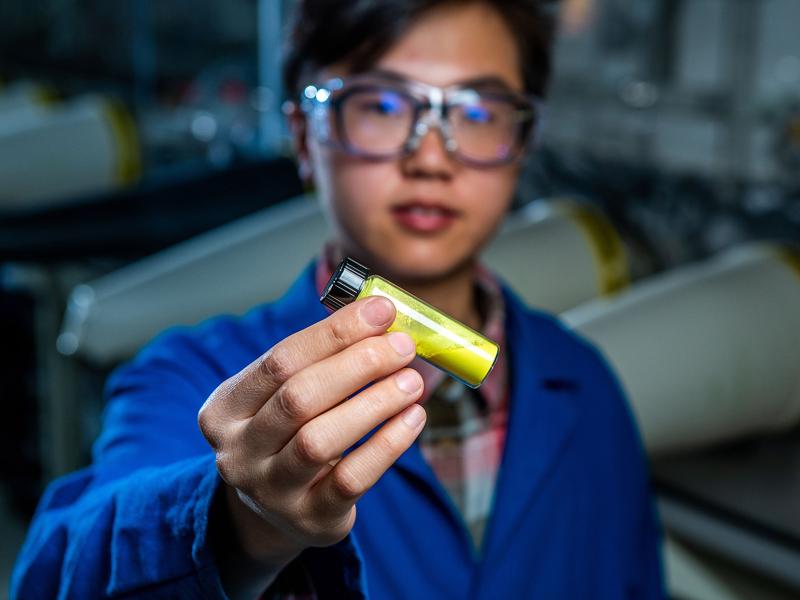
New Materials
The GSL’s facilities offer novel approaches for automated materials discovery and synthesis, utilizing digital twins, physics-informed data models, and high-throughput experimentation. These methods enable comprehensive screening, formulation, characterization, and optimization of new energy storage materials on a large scale while enhancing overall experimental design and minimizing errors.
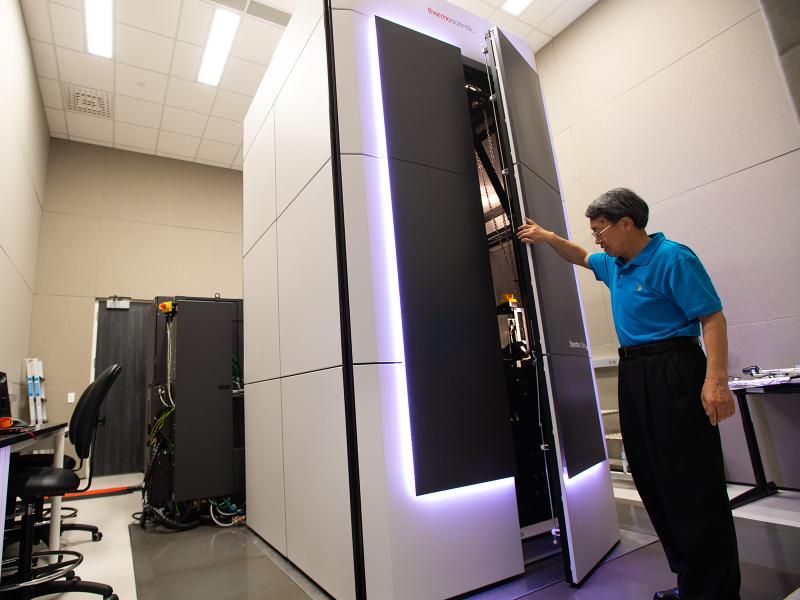
Advanced Characterization
The advanced characterization laboratories at the GSL are focused on understanding the fundamental properties of emerging storage technologies. These labs are equipped with advanced instruments like the Spectra Ultra STEM, which can provide highly sensitive chemical composition analysis and high-resolution images at the atomic level. Additional equipment includes a Thermo Fisher NEXSA X-ray photoelectron spectrometer combined with Raman spectroscopy, giving researchers detailed information on chemical states and insights into molecular bonding and structure. By integrating these sophisticated techniques, we can gather essential data necessary for advancing and optimizing energy storage materials. The advanced characterization laboratories were made possible by an $8 million investment from the State of Washington.
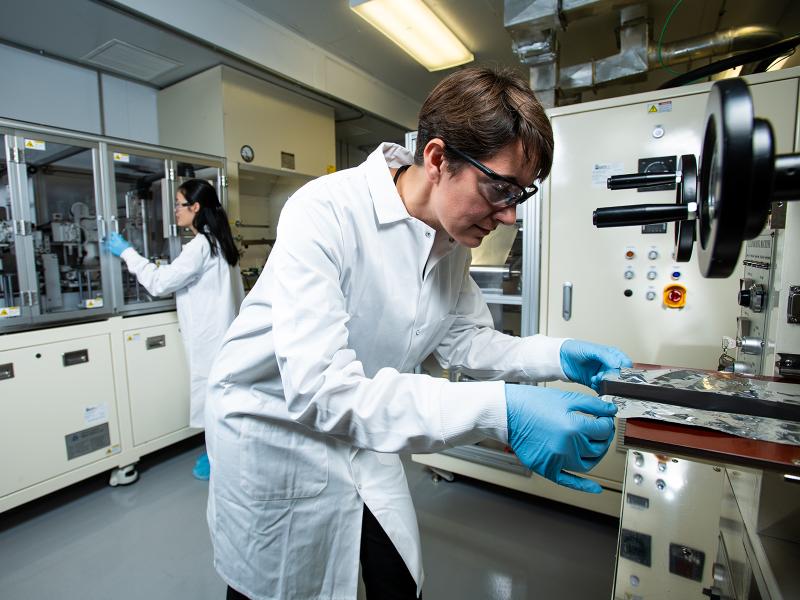
Pilot Prototyping
Pilot-scale prototyping equipment is used to quickly design and build prototype batteries for testing, which helps reduce both cost and risk when demonstrating how these technologies can work at industrial scales. Among the GSL’s specialized capabilities are a prismatic cell line and an ambient room used for preparing, fabricating, and testing pouch cells from powder materials, in addition to prototyping capabilities for redox flow batteries. The GSL is equipped with specialized machinery, which are essential for initial materials research and screening.
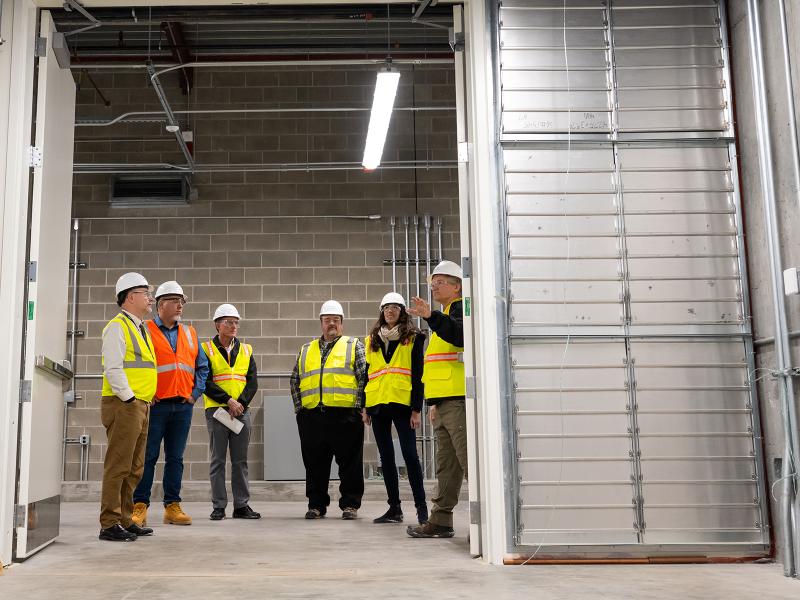
Testing Capabilities
10kW Reliability Test Laboratory
The GSL's 10 kW Reliability Test Laboratory spans over 6,000 square feet, dedicated to the rigorous performance testing of batteries and energy storage technologies. This facility allows researchers to meticulously validate materials and conduct exhaustive testing to understand the operational lifetime of new technologies. By performing comprehensive performance assessments, we can spot and address potential issues early in the development process.
100kW Test Chambers
The 100kW Test Chambers at the GSL are specially designed to safely test the performance of large-scale energy storage technologies under realistic operating conditions, making sure they meet future grid demands. The six chambers are capable of testing different technologies up to 100 kW/400 kWh. Our goal is to deliver the realistic performance data of these new technologies so they can advance toward commercialization.
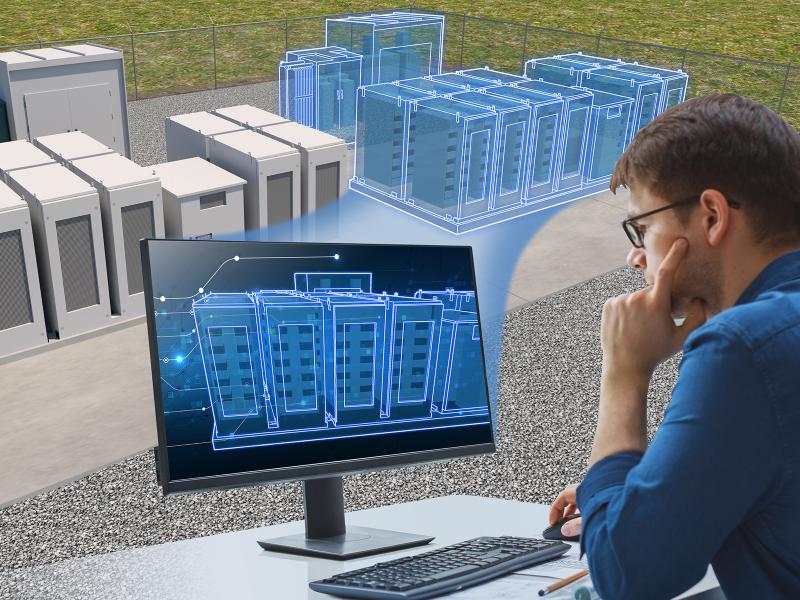
Visualization Laboratory
The Visualization Laboratory will leverage the EIOC to guide grid battery performance requirements and add rigor to the battery development process. With advanced visualization technologies, the lab offers real-time modeling and simulation to optimize design and performance. This approach helps energy storage experts specify what the performance of these systems needs from the very beginning, significantly speeding up innovation so that energy storage technologies are ready for the market faster.
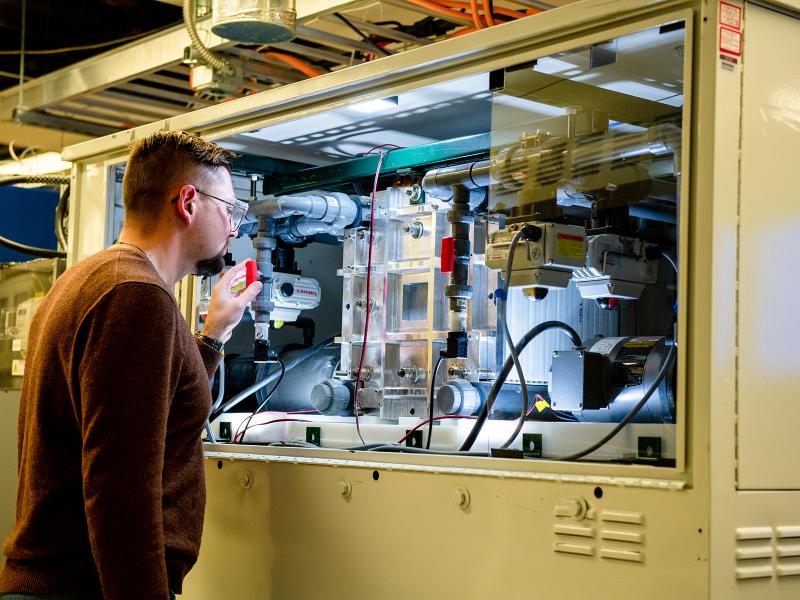
Education and Training Laboratories
The GSL includes two educational labs focused on training the energy storage workforce of the future, from installers and assembly personnel to code enforcement and regulatory planners. These labs are set up for hands-on activities to help participants/students better understand all aspects of energy storage technologies. The GSL will collaborate with strategic partners to develop certification and continuing education programs on topics such as the basics of energy storage, energy storage safety, and incorporating storage in regulatory and utility planning models.